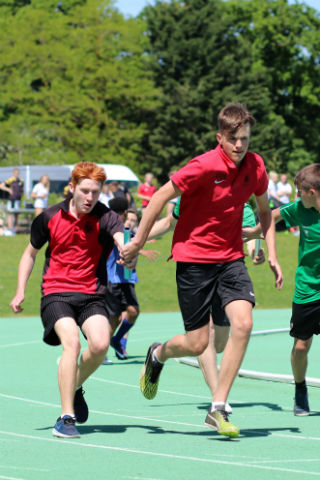
Telephone - 01628 483 752
Company Registration No.07690054
- Welcome
- News & Events
- About Us
- School Life
- Canteen & Catering
- Careers Programme
- Duke of Edinburgh’s Awards
- House System
- Library
- Lockers & Bicycle Racks
- One to One Laptop Scheme
- Parents’ Evenings
- Prefects: Sixth Form & Year 11
- Safeguarding
- School Nurse
- School Transport
- Student Support and SEN
- Teacher Training
- Transition to Year 7
- Uniform, Hair, Jewellery, Phones
- 6th Form
- Curriculum
- Parent & Carers
- Attendance Guide
- Bucks Family Information Service
- Bucks School Transport
- Communication & Catering
- Friends of Great Marlow School
- Information Evenings
- Gift Aid
- Letters Home
- Mental Health Support
- Online Safety Resources
- Parent/Carer Services
- Progress Review Guides
- School Uniform Shops
- Special Educational Needs
- The Voice – School Newsletter
- Student Area
- Sport
- Gallery
PE Department
 ABOUT PHYSICAL EDUCATION
ABOUT PHYSICAL EDUCATION
Physical education (PE) develops students’ competence and confidence to take part in a range of physical activities that become a central part of their lives, both in and out of school.
A high-quality PE curriculum enables all students to enjoy and succeed in many kinds of physical activity. It leads to the development of a wide range of skills including the ability to use tactics, strategies and compositional ideas to perform successfully. In an ambitious Physical Education Department, students learn to perform in a variety of sports activities; to analyse their performance, as well as that of their team; and to make conscious decisions about how to improve based upon their analysis. This process empowers young people to develop the confidence to take part in different physical activities and to learn about the value of healthy, active lifestyles. Actively discovering a sport to enjoy, and developing an aptitude for it helps teenagers make informed choices about lifelong physical activity.
“PE helps students develop personally and socially. They work as individuals, in groups and in teams, developing concepts of fairness and of personal and social responsibility. They take on different roles and responsibilities including leadership, coaching and officiating. Through the range of experiences that PE offers, they learn how to be effective in competitive, creative and challenging situations.”
(Extract taken from the National Curriculum PE)
- Physical Education at Great Marlow School
- Wider Curriculum
- Key Stage 3 PE
- Key Stage 4 PE Core
- Key Stage 4 PE GCSE
- Key Stage 5 PE – BTEC
- Key Stage 5 PE – OCR
- Careers In Physical Education
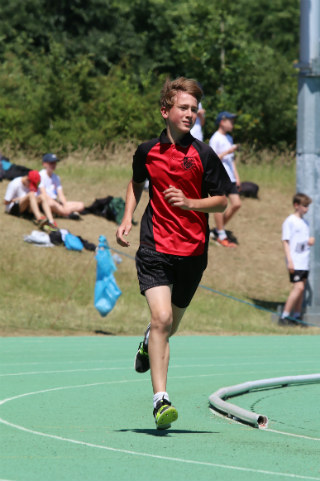 OVERVIEW of PHYSICAL EDUCATION AT GREAT MARLOW SCHOOL
OVERVIEW of PHYSICAL EDUCATION AT GREAT MARLOW SCHOOL
The Physical Education Department is vibrant and industrious. GMS PE is more than the ability to run, jump, throw and catch. We believe that Physical Education at Great Marlow is a powerful tool to help equip our students with strategies that will positively impact on our wider society. Through physical education, we provide our students with a vast number of experiences, which are instrumental in developing them into resilient, responsible, resourceful and respectful people. We want our students to reflect on these experiences, in order to discover their own relationship with sport, ready to enrich their life away from the field of play.
While we believe in the power of physical education to prepare students for later life, we still value the development of students’ sporting performances. With this in mind, the single sex PE curriculum at Great Marlow School has been designed to improve performance across a broad and balanced range of activities. In addition to this, students will experience lessons that are intended to facilitate learning experiences, which are used to enable them to explore and develop their relationship with key life and employability skills. In a similar vein, our broad and balanced curriculum is used to deliver lessons to our mixed set classes. Their learning adopts an approach that sees the emphasis on the development of key life and skills for the world of work, whilst recognising the value and progression of the core skills needed to enjoy a range of different sports.
Moreover, in any GMS PE lesson there is always an underlying value placed upon the physical, social and mental well-being that underpins physical activity. These core values strengthen the entire PE curriculum and are a constant in all lessons.
The Extracurricular Programme at GMS
The GMS PE Department runs an extensive extracurricular programme, which encompasses a huge variety of activities, spans all three school terms and caters for all age groups and abilities.
All students are encouraged to attend as many extracurricular clubs as possible. The rationale behind the extracurricular programme is to provide a sports opportunity to excite. By doing this, we are able to accommodate students for both participation and performance. We endeavour to give all of our students a wide range of experiences, which facilitate the development of valuable life skills, create life-long memories and promote perpetual involvement in sport and physical activity.
Our extracurricular programme, as with our timetabled curriculum, is committed to developing students’ broader life skills. We believe that our programme teaches valuable life lessons and develops important skills such as sportsmanship, commitment and hard work. We encourage our students to be proud of their achievements, but to do this in a modest and humble manner, whilst also educating students in how to cope with failure. All of these skills are nurtured on the field of play, but can be applied to every aspect of life.
Extracurricular Performance and Participation
In recent years, Great Marlow has become recognised as one of the best secondary schools for sport in the local area. However, GMS has also developed a fantastic reputation beyond the Wycombe District, through entering students into local, regional and national sporting competitions. The sports delivered as an extracurricular activity include hockey, netball, rugby, football, rowing, badminton, basketball, handball, fitness, dance, athletics, tennis, cricket and rounders. We compete strongly at county level in all of these sports but have also seen success regionally and nationally in rowing, athletics, hockey and inclusive zone basketball.
Every team and individual at GMS has the opportunity to compete in a great number of extracurricular practices and fixtures: as many as 1000. Within these fixtures and practices, there is a focus, not only on skill development, but also tactical awareness and the improvement of students’ physical fitness. In addition to this, GMS PE students are taught to address the psychological side of sport, to ensure they have the cognitive understanding necessary to perform to their best ability, whilst also maintaining their mental well-being.
Through participating in extracurricular activities we are able to nominate and help students to progress along their sport’s player pathway. Significantly, many of the students, who had not played the sport before attending Great Marlow School, made progress. The sports team endeavour to help students excel at their chosen sport, alongside managing school work.
Participation
Great Marlow School’s reputation for sport is not based solely around performance. We can boast of a number of extracurricular clubs, practices and fixtures, aimed specifically at participation and enjoyment. We want all GMS students to have the opportunity to participate in physical activity, whatever their reason for doing so and whatever their ability. We want all students to enjoy being physically active, and learn about the physical, mental and social benefits sport can have on well-being.
Each year around 500 GMS students participate in at least one extracurricular club. In order to maintain these high numbers, we ensure that fixtures are organised for all ability levels, so that every student can participate competitively for a team, or as an individual. Equally, those students who do not wish to compete fixtures do not have to do so; simply attending the training sessions, in a non-competitive environment is perfectly acceptable. All training sessions are differentiated, so that everyone is able to access the sport and make individual progress, with an additional emphasis on the importance of sportsmanship and fair play.
Due to strong links with a county inclusion specialist, the department has participated in several external sporting events and festivals, aimed specifically towards the inclusion of all students. This partnership has given a significant number, who would not usually compete in a GMS school team, the opportunity and confidence to represent Great Marlow School in a sporting competition, as well as experience the process of going off-site to attend a school fixture and feel the thrill of being part of a team.
It is usual for at least 60-70 students to be involved in one or more of these sporting events. The diverse range of activities includes invasion games with football and basketball, as well as divided court and net games, through tennis and table tennis. In addition to these more traditional games, our students have also participated in more artistic sports such as trampolining and inter-school swimming galas. This variety enables all students to access a sport they enjoy.
Girls’ Active Programme
Since 2016, Great Marlow School has been proudly delivering the Girls Active programme, which is a Youth Sport Trust initiative aimed at engaging girls in physical activity. As a school we have used the programme to engage over 300 girls (in addition to the huge number of girls already participating in extracurricular activities), developing their self-confidence and making PE relevant to their lives. Over the years the GMS girls have been recognised for a number of awards, including an individual Personal Growth award, Leader of the Year award and Best Girls Active Group (GLAMS) award.
The Youth Sport Award
As well as practical participation in physical activity, we also encourage students to take on leading, coaching and officiating roles, accomplished through the delivery of the Youth Sport Award scheme, which develops and grows leadership and management skills using the power of sport.
The Youth Sport Award aims to build positive lifestyle habits and behaviours; it empowers young people to take ownership of developing their own skills. It helps to support wider academic achievement and improve physical and emotional well-being by incentivising physical activity.
There are five different levels of the Award; Go, Bronze, Silver, Gold and Platinum. We offer all levels of this award to our 6th form students, who can choose the level they wish to complete at, based on their own personal circumstances. These 6th form students then develop the aforementioned leadership and management skills by assisting with KS3 and KS4 PE lessons.
The presence of our 6th form students in KS3 and KS4 lessons is hugely beneficial to all involved in the PE lesson. The leaders are fantastic role models to the younger students, who help and inspire the children they work with, alongside continuing their own personal development.
Outdoor and Adventurous Activities
The PE Department has embraced the Outdoor and Adventurous Activities (OAA) curriculum. Added to all the sporting opportunities listed above, the Department also offer cycling, camping skills and survival skills: like shelter building, fire building and cooking.
WIDER CURRICULUM
The Wider Curriculum allows students to take a further interest in their subjects and subject related material they study at school. The Wider Curriculum also enables parents and carers to actively engage with the opportunities offered by each department. Each PDF is hyperlinked, so when you click on them, the links will take you to areas where you may read, view, listen, visit and be creative.
| PE WIDER CURRICULUM KS3 | PE WIDER CURRICULUM KS4 | PE WIDER CURRICULUM KS5 | ||
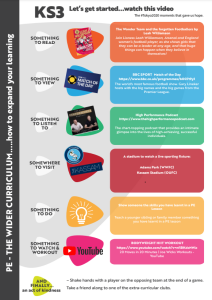 |
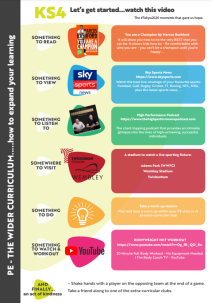 |
 |
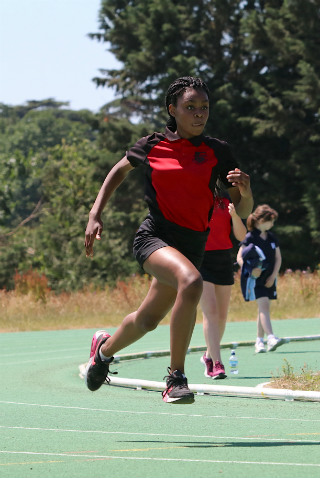 KEY STAGE 3 PHYSICAL EDUCATION
KEY STAGE 3 PHYSICAL EDUCATION
KS3 students receive three or four 60-minute lessons, spread over a two-week timetable. All students at GMS are expected to take a full and active part in all PE lessons. Students with injuries or illness will be fully, but safely, integrated into practical lessons, which ensures they are still able to access the learning and make progress.
Physical Education at GMS is designed to enable the students to experience a very broad and balanced curriculum, so they can extend their knowledge, understanding and ability across a variety of activities. Students in KS3 will gain access to a huge number of sports, spanning 6 different categories; invasion games, divided court and net games, aesthetic appreciation activities, striking and fielding games, athletics events and fitness/health related exercise.
In all years, the groups are taught in single sex higher ability groups or mixed set lower ability groups.
Students at Key Stage 3 participate in a number of activities during their physical education lessons these include:
| · athletics | · health related fitness |
| · badminton | · hockey |
| · basketball | · netball |
| · cricket | · rounders |
| · dance | · rugby |
| · football | · softball |
| · gymnastics | · table tennis |
| · handball | . tennis |
| · OAA (outdoor and adventurous activities) | |
KEY STAGE 3 Years 7, 8 & 9.
Year 7
During Year 7, students will learn all the core skills necessary for them to experience success across the entire range of activities on offer. The core skills developed are used in modified game/performance situations that focus on the successful execution of the skills in a competitive environment.
Year 8
During Year 8 students further develop the core skills taught in Year 7. This enables them to perform sequences of play/performance that flow together with good execution. Once established the students begin to develop the more accessible of the advanced skills from the different activities. Both the linked core skills and the advanced skills are experienced in modified game/performance situations.
Year 9
During Year 9 students develop their ability through the learning and execution of advanced skills. These skills are used in conjunction with the delivery of strategies, tactics, compositional principles and performance management. The aim is to enable the students to develop a more comprehensive understanding of the respective sports. Students will engage in practise situations designed to facilitate the development of their whole performance as opposed to isolated skills.
Students are assessed in four aspects of physical education. These are:
- developing skills and techniques
- making and applying decisions
- evaluating and improving
- making informed choices about healthy, active lifestyles
Each sporting activity will be assessed to give an overall grade. Teachers track and monitor throughout. When reporting this information to parents and carers, teachers will give one grade that represents the average: this grade will be representative of the qualities a student shows across a range of disciplines. At least four skills are assessed from two activity areas.
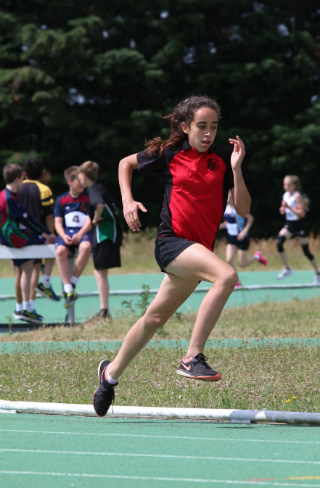
KEY STAGE 4 PE CORE
KS4 students receive four 60-minute lessons, spread over a two-week timetable, regardless of whether students have chosen PE as a GCSE option. All students at GMS are expected to take a full and active part in all PE lessons, including students experiencing injury or illness, who will be fully integrated into practical lessons.
YEAR 10 PE CORE (Non GCSE Students)
This is the consolidation phase of a culmination of three consecutive years of learning. Lessons will allow students to focus on performance or game play. This is used to facilitate strategic and tactical understanding of the respective sports, whilst in a full and competitive situation. The lessons often adopt a ‘games for understanding’ approach where students are asked to initiate reflection and evaluation of performance based upon their knowledge and understanding. This reflection and evaluation process is used to demonstrate the importance of progress and how this is established.
YEAR 11 PE CORE (Non GCSE Students)
During Year 11 students take responsibility for their PE. Through systematic planning and preparation, which is carefully guided by the class teacher, small groups of students teach the lessons. The process is completely reflective, and the evaluation of key life and employability skills are used to enable the students to develop and improve. The activities are loosely determined by the teaching space that is timetabled to the group. Students will still experience a broad and balanced curriculum that is reflective of their previous 4 years of PE at GMS.
The key life and employability skills, developed through the facilitation of Sport Education include, but are not limited to, teamwork, communication, responsibility, empathy, innovation, resourcefulness, respect, resilience, leadership, readiness, reflection, professionalism and organisation.
Students at Key Stage 4 can participate in a number of activities, the main ones include:
| · athletics | · health related fitness |
| · badminton | · hockey |
| · basketball | · netball |
| · cricket | · rounders |
| · cross country | · rowing |
| · dance | · rugby (union or league) |
| · football | · softball |
| · gymnastics | . table tennis |
| · handball | . tennis |
GCSE PE (OCR J587)
Overview of Course Content
Students will receive 4 theory lessons and one or two practical lessons in every two week cycle. In Year 10 students are introduced to some of the physical factors, which underpin participation and performance in physical activities and sport. A study of the ways parts of the human body work and function during physical activity begins, and the physiological adaptions that can occur due to diet and training. Students will also develop their knowledge and understanding of the principles of training, why we train in different ways and how training plans can be used to optimise results.
In Year 11 students will develop their knowledge of socio-cultural influences that impact on participation and performance in physical activities and sport, in addition to developing their knowledge and understanding of how sport impacts on society. Students will learn about the commercialisation of sport, how we acquire, develop and classify movement skills and, develop their knowledge and understanding of physical, mental and social well-being.
Breakdown of the Course
The content of OCR’s GCSE (9–1) in Physical Education is divided into three components. Each component is further sub divided into topic areas with the detailed content associated with those topics.
Component 01: Physical factors affecting performance:
1.1 Applied anatomy and physiology
1.2 Physical training
Component 02: Socio-cultural issues and sports psychology
2.1 Socio-cultural influences
2.2 Sports psychology
2.3 Health, fitness and well-being
Component 03: Performance in physical education (non-examination assessment NEA):
3.1 Performance of three activities taken from the two approved lists:
- one from the individual list
- one from the team list
- one other from either list.
The list of sports can be found in the OCR GCSE PE specification on the OCR website.
3.2 Analysing and Evaluating Performance (AEP), task-based non-exam assessment (NEA)
Assessment
- Physical factors affecting performance (01)
1 hour written paper – worth 60 marks, 30% of total GCSE.
- Socio-cultural issues and sports psychology (02)
1 hour written paper is worth 60 marks, 30% of total GCSE.
- Performance in physical education (03)
80 marks non-exam assessment (NEA) and worth 40% of the final grade.
Expectations
We expect our GCSE PE students to regularly participate in at least 3 extracurricular clubs, either in school or outside school. Students should be regularly competing in competitive fixtures in the sports they are being assessed in practically and should keep a record of these fixtures on a competitive performance log.
Students should have a passion for sport and take keen interest in sport science. The course requires an aptitude for, and understanding of, scientific theory; being good practically is not enough to ensure a good grade.
Career and further education opportunities
The GCSE course will prepare learners for the further study of PE or sports science courses, for example A-level PE or BTEC sport, as well as other related subject areas such as psychology, sociology and biology. Learners will also develop the transferable skills that are in demand by further education, Higher Education and employers in all sectors of industry.
The course appeals to students who:
- have a keen interest in sport and recreation
- take part in sport/recreation outside class time
- want to follow a course that develops knowledge and understanding through practical and classroom based involvement
- want to know more about the benefits of sport and exercise
- are considering a sports-leisure related career or an A-level/ higher education course
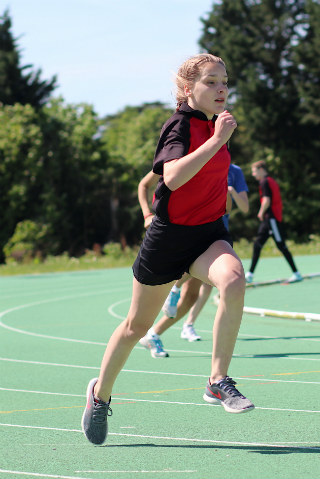 KEY STAGE 5 BTEC NATIONAL EXTENDED CERTIFICATE IN SPORT
KEY STAGE 5 BTEC NATIONAL EXTENDED CERTIFICATE IN SPORT
Why study BTEC Sport?
The Pearson BTEC National Extended Certificate in Sport is intended to be an applied general qualification for post-16 learners who want to continue their education through applied learning and who aim to progress to one A-level. The content of this qualification has been developed in consultation with academics to ensure that it supports progression to higher education.
Entry Requirements
Students should have achieved at least a Grade 5 in the GCSE Physical Education (if studied) or a 5 in science and English. Candidates have to have a keen awareness and interest in current sporting issues.
Employers and professional bodies have been involved and consulted to confirm that the content of this course is appropriate and consistent with current practice for learners who may choose to enter employment directly in the sport sector.
What could this qualification lead to?
The qualification carries UCAS points and is recognised by higher education providers because it meets admission requirements for many courses if taken, alongside other qualifications, as part of a two-year programme of study. It combines well with a number of subjects and supports entry to higher education courses in a wide range of disciplines.
What will I learn?
Learners will study three mandatory content areas:
- Anatomy and Physiology
- Fitness Training and Programming for Health, Sport and Well-being
- Professional Development in the Sports Industry
Learners will also choose one optional unit from a range that has been designed to support choices in progression to sport courses in higher education, and to link with relevant occupational areas.
Assessment
Assessment is specifically designed to fit the purpose and objective of the qualification. It includes a range of assessment types and styles suited to vocational qualifications in the sport sector. There are three main forms of assessment; external, internal and synoptic.
A- LEVEL IN PHYSICAL EDUCATION OCR H555
Physical Education
A-level PE is a progression for GCSE PE students achieving a high Grade 6 or above and is ideal for those students, who want to pursue a career in sport or study further in this area at university.
If you have a wide-ranging interest in sport, compete or coach regularly, and would like to follow a course that is both interesting and challenging, then A -level PE could be the right option for you.
About the Course
OCR A-level PE is an examination-based course, which takes place over a two-year period. The course is split into three theory sections and one practical section.
The course aims to develop theoretical knowledge and understanding of the factors that underpin physical activity and sport. Students will learn how physiological and psychological states can affect performance, learn the key socio-cultural factors that influence people’s involvement in physical activity, and learn about the role that technology plays in sport.
Students will also refine their ability to perform effectively in one specific sport. They will do this by developing skills and techniques, as well as by selecting, and using tactics, strategies and/or compositional ideas in their chosen sport. Students will develop their ability to analyse and evaluate in order to improve performance, as well as understand the contribution that physical activity makes to health and fitness.
Entry Requirements
Students should have achieved a high Grade 6 in their GCSE Physical Education (if studied), and a Grade 7 or higher in Paper 1 of the OCR GCSE PE course. If PE has not been studied for GCSE, a Grade 6-6 or above in science is required and suitability for the course will be considered on an individual basis. Students should also regularly compete or coach in a sport on the OCR A-level specification.
A-level Course
The A-level course is assessed over three components in the second year.
Components 1, 2 and 3 are externally assessed in a 2 hour paper for component 1; a 1 hour paper for component 2; and a 1 hour paper for component 3. Overall, the examination components are worth 70% of the candidate’s final grade.
Non-examination assessment (NEA)
For component 4, learners are internally assessed and externally moderated through one practical activity and one ‘Evaluation and Analysis of Perfomance for Improvement (EAPI) task. For the practical activity, candidates are able to be assessed as either a performer or a coach.
The non-examination assessment is divided into two parts.
- Performance or coaching (20%)
- Evaluation and Analysis of Performance for improvement (10%)
Overall the NEA is worth 30% of the candidate’s final grade.
Component 01: Physiological factors affecting performance
- 1.1 Applied anatomy and physiology
- 1.2 Exercise physiology
- 1.3 Biomechanics
- Worth 30% of total grade.
Component 02: Psychological factors affecting performance
- 2.1 Skill acquisition
- 2.2 Sports psychology
- Worth 20% of total grade.
Component 03: Socio-cultural issues in physical activity and sport
- 3.1 Sport and society
- 3.2 Contemporary issues in physical activity and sport
- Worth 20% of total grade.
Component 04: Performance in physical education (Non Examination Assessment: NEA)
- 4.1 Performance or coaching of an activity taken from the approved lists
- 4.2 Evaluation and Analysis of Performance for Improvement (EAPI) one activity taken from the approved lists.
- Worth 30% of the total grade.
CAREERS IN PHYSICAL EDUCATION |
||
| The Armed Forces | Personal Trainer | Sports Instructor |
| Athlete | Physiotherapist | Sports Rehabilitation |
| Dietician | Police Officer | Sports Technologist |
| Health and Fitness Instructor | Sports Biomedical Scientist | Sports Therapist |
| Medical Researcher | Sports Coach/ Manager | Teacher |
| Nutritionist | Sports and Exercise Scientist |
